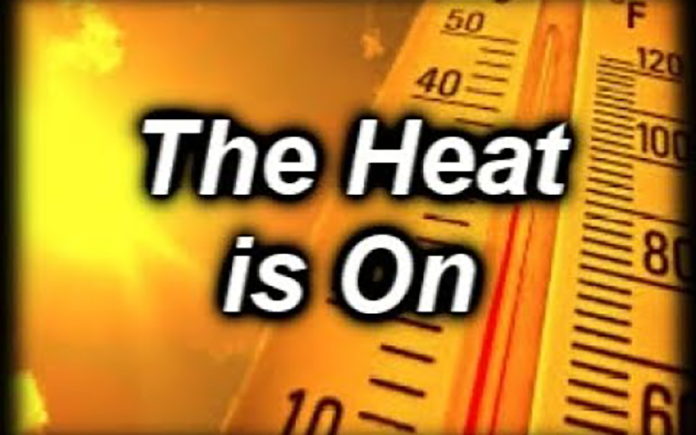
By Haddon Libby
It is officially summer again in the Coachella Valley.
Accuweather predicts that July will be of concern across the United States with many ‘high-impact’ events like wildfires, drought, flooding and high temperatures. As California had a very wet winter and spring, hot temperatures are expected to take a little longer to set in. We have seen this with our atypically mild temperatures in May and most of June. This pleasant weather will give in to our normally scorching summers as the calendar flips from June to July.
This summer the weather pattern, La Nina is giving way to her brother, El Nino, after three years in charge of weather patterns in the west. La Nina is known as a moderating force where temperatures are lower and rainfall higher across much of the United States. Here in southern California, we see warmer and drier conditions.
El Nino is known to cause the Pacific jet stream to move lower causing dry conditions and higher temperatures. For 2023, forecasters believe that this will cause wetter conditions across the south, warmer conditions in the northwest and upper Midwest and dry conditions for most of the Midwest and southeast. Here in southern California, we can expect higher rainfall and lower temperatures.
National Oceanic and Atmospheric Administration (NOAA) data shows that last summer was the hottest ever for the planet. The worst of last year’s heatwaves were felt in Europe and China. Here in North America, 2022 was the hottest on record since 2019 while Europe suffered through its worst drought in more than 500 years.
Over the last five decades, temperatures have risen on average by one-half of a degree per decade. Most troubling is that five of the hottest summers on record have occurred since 2015 with three of the last five years amongst the worst.
The World Economic Forum points out that if temperatures rise another 4.4 degrees, the world is likely to see an 11% decline in economic activity (GDP or Gross Domestic Product) with North America experiencing a 7% decline. If temperatures were to rise by 7 degrees, roughly one-fifth of global GDP would go away. The Middle East and Africa would be hit most, losing 28% of GDP with Asia down 27%. Here in North America, 10% of GDP would go away. Countries like India, Malaysia and Indonesia would suffer some of the worst economic damage as they cannot adapt to higher temperatures as easily as more developed countries like the United States or those in Europe.
If the world can keep temperature increases under 4 degrees over the next three decades, economic damage would be limited to 3% in North America and Europe, 5% in the Middle East and Africa and 5.5% in Asia. Generally, less developed countries would benefit the most from lower temperatures.
Higher temperatures impact global economies most as worker productivity goes down. Melting ice caps add to moisture in the air which causes more extreme weather and floods. This ruins agricultural crops while damaging infrastructure.
With global populations expected to grow by 20% to 10 billion over the next 25 years, the need for more food will take on increased urgency. Expectations are that crop yields will fall by 5% to 15% for every 2 degrees that temperatures increase.
Melting ice caps cause ocean levels to rise causing increased flooding in low lying coastal areas globally. These floods lead to billions in economic damage and are likely to displace large swaths of the populations inhabiting low-lying coastal areas around the world.
 Besides flooding, droughts will occur with greater frequency. This will lead to more fires like those experienced in Canada over the last few weeks.
Besides flooding, droughts will occur with greater frequency. This will lead to more fires like those experienced in Canada over the last few weeks.
All of this will mean that owning real estate in areas prone to flooding or fires will be increasingly risky. Places with limited sources of water will struggle. Fortunately for us, Coachella Valley has ample water reserves to last decades. That said, grass lawns that do not use recycled water are a waste of an increasingly precious resource.
Haddon Libby is the Founder and Chief Investment Officer of Winslow Drake Investment Management. For more information on our award-winning services, please visit www.WinslowDrake.com.













































